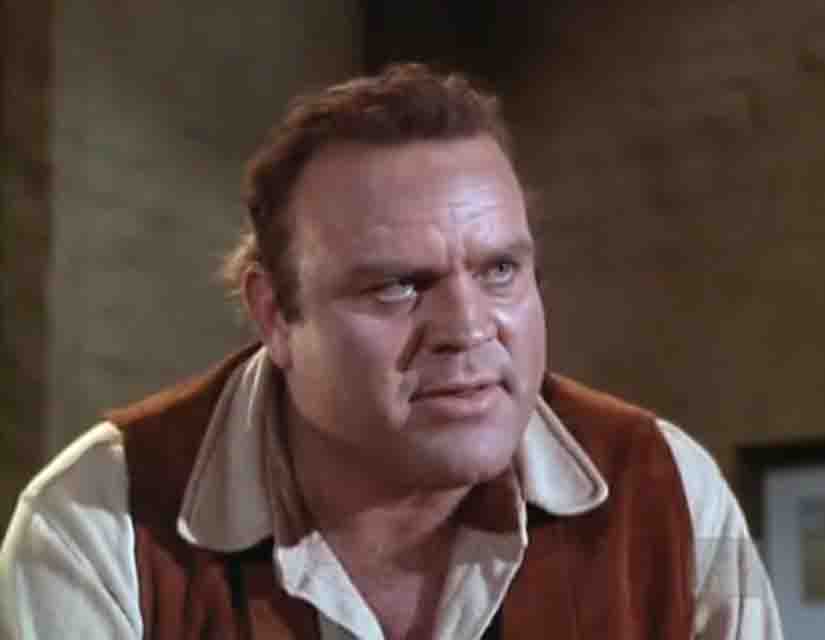Writer’s Note: Despite the overwhelming popularity of Bonanza through its 14 years on TV, from 1959 to 1973, it wasn’t one of my favorites as I was growing up. I often preferred other TV westerns like “The Big Valley” and the comedy “F-Troop.” However now, as an older man and a parent, I find the Bonanza series exceedingly entertaining, with rare exceptions, with its very diverse adventure, social and multi-ethnic themes, from the light-hearted, sometimes wacky, sometimes risqué, to the deadly serious. Its cinematography and musical score are grand in scale. More so, Bonanza stands out in its own unique way for its positive and contemporary messages intended to help shape the moral compass of families and society.
.
I also found Bonanza an unlikely place to hear an analogous explanation to one of the woes that has long affected the psyche of many Americans.
.
Let me take a swing at trying to explain this.
.
People as well as nations have difficulty in dealing with wealth and prosperity given to them without having done the work.
.
It’s takes a certain mindset to build a nation (or even a company) and yet another to destroy it, the problem stems from the idea that effecting change is good if you can achieve it.
.
The problem is illustrated in a common childhood scenario. The productive child builds the tower of blocks and the destructive child knocks it down. Both children believe they’ve achieved something and see the results of their work – but to what ends?
.
Moreover, the destructive child does not exhibit the ability to create and construct and since it is so much easier to destroy than to build, the destructive child sees value in the change. Just keeping things the way they are, by preserving what has been built by the productive child is not an alternative to the destructive child, he must DO something, but all he is capable of is the lesser action, therefore he does it.
.
It is not until a clear picture of what right and wrong action is and how the destructive actions are merely a weak-willed alternative disguised in some presumably constructive act that a positive change can be effected.
.
.
BONANZA
.
I was watching an episode of Bonanza recently called “A Dream to Dream” (Series 9, Episode 26). Hoss Cartwright confronts a man (“Carter”) who, through years of drunken escape, is neglecting his wife and children because he is overcome with guilt over an accident that killed his first son. Carter is a successful horse rancher and the tragic irony is, his son died in a horse riding accident.
.
Through four years of drunkenness and shirking his family responsibility he hopes to effectively detach himself from his family, ostensibly so he never has to face the pain of being responsible to hurt his family in the same way again, despite the reality that he is causing more harm to his family than he can imagine.
.
Because Hoss sees the situation as destructive for the wife and two young children, he plans on taking them away from Carter.
.
Isn’t that similar to what is happening in the United States of America now? Because we’ve experienced some problems, some leaders believe we need to tear down the whole system, even the culture, traditions and institutions that have been part of the America and have stood in modern history as truly great.
.
The drunken caregivers are in full play in today’s politics at many levels. What is needed is the Hoss Cartwright to wake up those, who through their willing detachment from reality and responsibility, are effectively destroying the finest country in the world.
.
.
Here’s the dialogue from the pivotal scene (transcribed as heard):
.
Carter (sitting in his home office, behind his big desk with a bottle of whiskey standing on it): “[The death of my son] could have happened to anyone but it happened to me, I’m not asking for forgiveness or sympathy, Cartwright.”
.
Hoss (standing facing Carter in front of his desk): “Good, ’cause you ain’t gonna get none here – For the last four years, you ain’t been a father, you ain’t been nothin’. Nothin‘!”
“You gotta wife and two kids that need a lot of lovin’ to make up for what you ain’t give’m.”
.
Carter: “These past four years, have not been easy for me either.”
.
Hoss: “Aw, come on Carter, you ain’t been suffering that guilt for yourself, you been makin’ Sarah and those kids suffer’d.” (pause) “Let me tell you somethin’ … (pause) destroying their love was no accident.”
.
Carter (Angry): “Get out of here.”
.
Hoss: “You don’t love Sarah.” (pause) “You’re just afraid of being alone.”
.
Carter (self-pleasing): “Aw, I’m not afraid of bein’ alone, Cartwright. I’ve worked very hard at that for these past four years.”
.
Hoss: “Yeh… you gonna keep workin’ at it aren’t ya.” (Pause)
.
Hoss: (deeply serious) “A man that loves his wife, wouldn’t sit back and watch another man take her away from him.” (pause) “You stay with that bottle, that’s all you need buddy.”
.
In the next scenes, Hoss leaves the room, Carter fights with his temptation to drown his struggle in whiskey, then determined, albeit in his inebriated stupor, goes after Hoss. Hoss is waiting in the adjacent room to take on Carter in another classic, though brief, TV knock-down fist-fight. They exchange a few blows until Hoss just decisively pounds him into the ground in his tough love.
.
.
So what is this Bonanza scene analogy for? Who is it for?
In government and society, there are some people who are dead set to destroy the country. I don’t think this analogy necessarily applies as them, those hard-core true believers. I believe Carter more represents the people and the leaders in this society who have become complacent, even apathetic to the destruction that is occurring around them, having seen a few justifiably bad things that have resulted from policies and/or practices in the United States leads them somehow to believing the entire system needs to be or should be allowed to be turned on its head. And for others or the same, their assumption that doing nothing to protect what has been good is like Carter going back to the bottle, finding a distorted and deceptive comfort in their own denial.
.
I’m sure you could probably think of a number of people who fall into this category.
.
The question is, is one of them you?
.
.
What action must you take?
For those who are privileged to be citizens of the United States, what liberties and freedoms do you enjoy that are worth defending and fighting for? Right now you may take them for granted, that somehow they exist without a responsibility or effort to preserve.
If you think about them from the beginning, these liberties and freedoms were forged from great vision, pain and sacrifice of previous generations and they must be maintained with determined and committed effort.
.
It wasn’t a perfect path, but it is what brought us to where we are.
.
We have Rights, Liberties and Freedoms, made possible by the nation we live in and by virtue of being a nation we have preserved these Rights. If you knew these fruits of citizenship would be taken away from you, would you just sit back and watch as they disappear?
.
.
If you’ve received some value from this, please LIKE SHARE COMMENT
.
I’ll see you… on the next page
…
Also, I invite you to check out my first research on personal development in the form of a report/guide to OVERCOME this MENTAL OBSTACLE. Just sign in with your name and email on the online form on this webpage and it is all yours.
.
All photos included in this article may be subject to copyright


